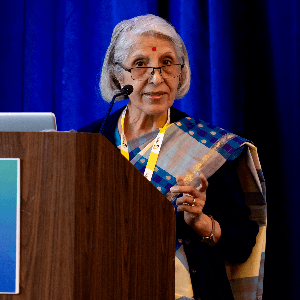Title : Patterns of alcohol use, alcohol research and genomic pathways on alcohol dependence in India
Abstract:
India, which has a vast and long cultural heritage, interestingly, does not fit into the usual conceptualization of cultures as abstinent, ambivalent, permissive or over-permissive cultures. Traits of both abstinence and permissiveness towards drinking have always existed across the Indian population. Historically, in the vedic times alcohol use while was permissible to warrior communities, the upper and elite communities. The post independence India has witnessed changes in pattern of alcohol consumption
Another interesting aspect of alcohol consumption in India is its pattern. Now, alcohol consumption is not only common but alcohol problems affect individuals from all sections of society regardless of their cultural background, educational background, religion, gender or age. Over the past decades, a number of treatment options have been developed for people with alcohol use disorders and considerable progress has been made both in pharmacological and psychosocial interventions for alcohol dependence
A comprehensive online and hand-search of the Indian literature on alcoholism was conducted. Among studies on epidemiology, National Household Survey with a nationally representative sample revealed that 25% of the adult males were current alcohol users of which~ 20% were alcohol dependent. Numerous studies have focused on the clinical course, treatment seeking, and outcomes showing that only a minuscule fraction (~2%) of alcoholics seeks treatment. Factors associated with better and poor outcome have also been delineated. Comorbity rates of alcoholism with other psychiatric disorders vary 20% to 50%. Psychosocial issues have also been addressed. Others have highlighted contribution of drinking to family burden, domestic violence and high risk sexual behaviors leading to greater risk of HIV transmission
The health sector in India is well aware of the harms associated with drinking. Almost all substance abuse treatment facilities provide treatment for alcoholism. At a policy level, though the constitution of India directs the state to take all the necessary measures to promote prohibition. Thus the Indian society remains a culture-in-transition in many respects including its pattern of alcohol consumption.
Many Biological studies have been conducted on health consequences of alcoholism, association of alcoholism with various adverse affects such as Cardiac, Neurological, Gastroenterological and Metabolic consequences. This talk would enlighten the audience on Patterns of alcohol use, alcohol research and summarize on Genomic pathways initiated by me for the first time on Indian population
It could be safely concluded that though country has a huge research experience on most epidemiological and clinical aspects of alcoholism, there is still a lot of potential for improving the quality of biological research on alcoholism.




